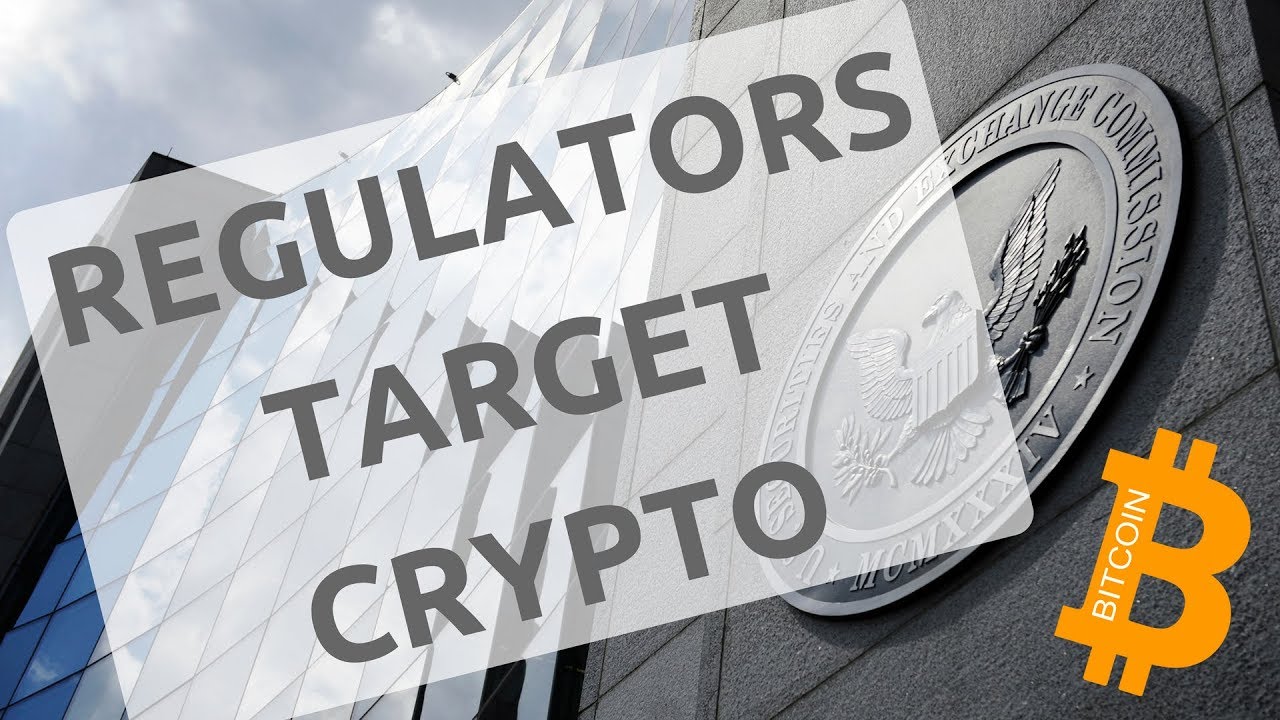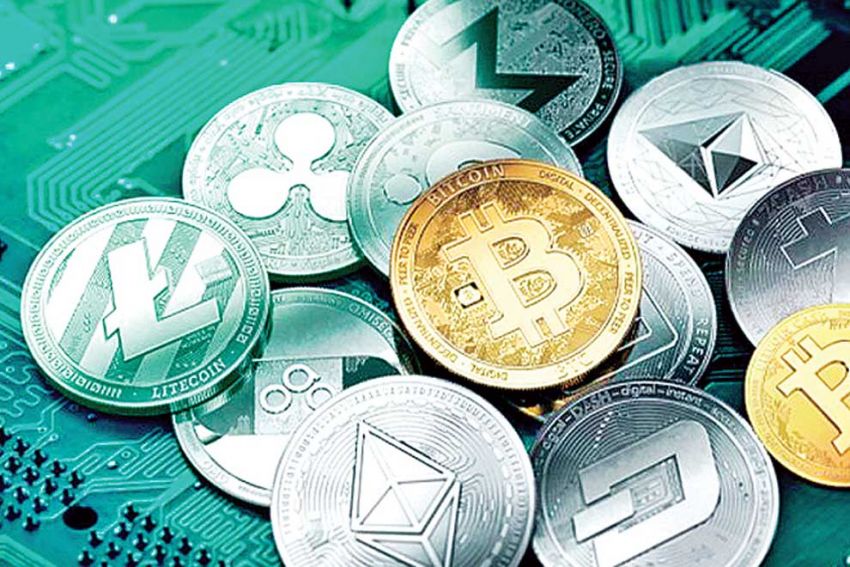Despite the efforts of regulators, government officials, and security professionals, it appears that crypto-currencies are here to stay in one form or another. No one had ever heard of Bitcoin or Ethereum a decade ago, let alone the innovative idea of using an Initial Coin Offering (ICO) to raise startup capital without going through traditional channels that specialized in such funding scenarios. Both “blockchain” schemes stand upon uncertain foundations, anathemas to existing banking and regulatory systems across the globe, yet attractive to speculators and those seeking anonymity.
The introduction of ICOs and their sudden popularity in 2017 only muddied the crypto-currency proposition by dividing the product between two very different and varying existences. Per one analyst: “There are two main types of crypto-currencies from a regulatory perspective: utility tokens and asset-backed tokens. Utility tokens may have value because they enable the holder to exchange the token for a good or service in the future, such as Bitcoin. Asset-backed tokens may have value because there is an underlying asset which the holder of the token can attribute value to. In many countries it is uncertain whether utility tokens require regulation, but it is more likely that asset-backed tokens do require regulation.”

Bankers and regulators had already targeted the Bitcoin phenomena as revolutionary and a criminal’s paradise as far back as 2012. Initial efforts to kill the system in its infancy, however, failed in every jurisdiction. Zealots may have backed the system as an alternative to current payment system modalities, but insiders realized that scaling issues were such that Bicoins could never attain any level of market share that would be noticeable. Its stalwart supporters prevailed, and many copycats resulted to acquire share in this burgeoning market, Ethereum, Ripple, and Litecoin, to name a few.
And then along came Initial Coin Offerings, “a type of crowd-funding using crypto-currencies as a means of raising capital that have been prone to scams and securities law violations.” The popularity of ICOs skyrocketed in 2017, taking the industry by storm and confusing a broad set of the investing public as to what these vehicles really were. What began as a creative way to raise seed capital by entrepreneurs has morphed into literally a coin toss by investors as to whether any of these ventures could possibly be going concerns, worthy of a future longer than six months. If you are salivating at the mouth and hoping to jump on this bandwagon anytime soon, you may want to take a breath and consider these facts from industry newsletters:
- ICOs raised almost 40 times as much capital as they had raised in 2016;
- ICO fund raises still amount to less than two percent of the capital raised by the traditional IPO route;
- Companies raised around $6 billion via ICOs in 2017; 37% of that amount was made by only 20 ICOs;
- As of November 2017, there were around 50 offerings a month;
- By February, 2018, an estimated 46% of the 2017 ICOs had failed.
The latter sobering fact is worth noting with emphasis added – the probability that an ICO will last more than a year is less than 50%, a simple coin toss, if you will. Add to this mix that regulators are on the attack and that scams are highly prevalent in this sector, due to a lack of any regulatory compliance whatsoever, and you have a formula for imminent disaster, if not in one year, then possibly the next. Filecoin may have raised $257 million in January of 2018, but what will investors be saying in a year or two from now. The jury is definitely out, but scams and fraud never take time to deliberate.
What is the regulatory climate surrounding crypto-currencies at this juncture?

The regulatory establishment has taken many broadside hits over the past few years. The forex price fixing scandal involving the largest and most respected global banks in the system came as an unwanted surprise. The Swiss Franc debacle wreaked havoc with forex brokers and their client accounts, and the loss rates for binary options and CFDs, estimated to be in excess of 90%, did not go quietly into the night, as well. The reputation of regulators and their ability to protect consumers came under focused scrutiny, without favorable rebukes in any jurisdiction. Does anyone wonder why every regulator known to man has come out firing at crypto-currencies?
Regulatory efforts in the past to stop crypto-currencies in their early tracks may have failed, but consumer complaints are mounting. It is pretty simple math to apply a 50% loss rate to the $6 billion raised in 2017 and come away knowing that there are more than a few very angry investors scattered about the planet, ones that will not hesitate to file complaints and initiate related lawsuits with the local powers that be.
Starting at the top, the Bank for International Settlement has this choice bit of words to say on this topic in its 2018 annual report: “The criticisms include the lack of stability in Bitcoin’s price, the “environmental disaster” entailed by high energy consumption, high and variable transactions costs, the poor security and fraud at crypto-currency exchanges, vulnerability to debasement from forking, and the influence of miners.” This comment may have been directed at the leader of the pack, Bitcoin, but the noted risks are most certainly exacerbated when you apply these issues to its smaller brethren.
Closer to home, the CFTC warned in its December 2017 report that virtual currencies have a varied assortment of potent risks, namely:
- The exchanges are not regulated or supervised by a government agency;
- The exchanges may lack system safeguards and customer protections;
- Large price swings and “flash crashes” are prevalent;
- Market manipulation due to a monetary policy based on artificial scarcity;
- Extraordinary history of major theft and hacking losses at exchanges;
- Self-dealing by the exchanges.
If your due diligence produced these facts, would you want to deal with these outfits? The warnings, however, do not stop there. Other regulators from the U.S. to the UK to continental Europe have all warned against Bitcoin and its smaller “wannabes”, as being nothing more than Ponzi schemes with manipulated price levels, that their basic broker/exchange systems are highly susceptible to hacking although the blockchain technology is not, and that fraud is rampant throughout the network of system suppliers and participants. ICOs are also known for “pump-and-dump” scams, a fact that has moved most major social media platforms to block their ads as not being in good faith.
The “six-month half life” statistic is, perhaps, the most damning testimonial for investors to take heed of, but the hordes keep coming. The “artificial scarcity” principle behind the mining of Bitcoins adds fuel to any demand fire that ignites beneath it. Prices languished beneath $1,000 for years, but then “irrational exuberance” took over, sending prices beyond $19,000. As we soon reported thereafter, “The “asset bubble”, which formed some months back, has been deflated, leaving many investors wishing that sanity had prevailed before they had established their positions.” Bitcoin fell below $6,000 and now hovers near $8,000, depending upon the degree of support in the press. Other systems did not fare this well, recording higher rates of loss, especially for ICO investors.
Yet, after all is said and done, there still remains a zealot or two to argue the reverse. Take Tim Draper, a venture capitalist, who has heavily invested in Bitcoin. He counters that, “Bitcoin is bigger than the Internet. It’s bigger than the Iron Age, the Renaissance. It’s bigger than the Industrial Revolution.” I can only wonder if Mr. Draper liquidated his positions before the bubble burst. We have not heard from him in quite a while. Coins of the realm, by the way, must be purchased from exchanges, which have a checkered past when it comes to the prowess of their security measures. There have been several small instances where a few million dollars have disappeared, but here are a few of the major headline stories since 2014 – Buyer beware:
- February 2014, the Mt. Gox exchange reports $480 million worth of Bitcoin missing;
- August 2016, about $65 million worth of Bitcoin stolen in the Bitfinex hack;
- November 2017, $31 million worth of tether tokens reported stolen and converted to Bitcoins;
- December 2017, NiceHash, a marketplace for crypto-mining reported $63 million worth of Bitcoin stolen.
In other words, your present positions in crypto-currencies may be impossible to convert to cash, if your chosen exchange is insolvent, just one more risk to worry about.
An overview of the present legal landscape
To make matters worse, crypto-currencies do not fit nicely within the purview of a single regulator within a given jurisdiction, nor do existing operating regulations on the books define a workable scope for regulators to follow when applying oversight to the current virtual currency mania. In each domestic situation, regulators are playing a game of push and grab, if you will. They must respond to consumer complaints when pushed, but they are having difficulty grabbing the guilty parties before it’s too late.
The CFTC, the SEC, the FSA, and ESMA have all condemned the product, but grudgingly accept it. China and India have forbidden crypto-currencies or blocked their links to the banking industry, but only until further investigation. ICO offerings, however, are being attacking as being “securities”, a roadblock that will put people in jail.
As the commissioner for ASIC, John Price, has said, “Regardless of the structure, however, there is one law that will always apply – you can’t make misleading or deceptive statements about the product. This is going to be a key focus for us going forward.” Cross-border solicitations have always been an issue in this space, but Mr. Price reiterates that, “We will highlight that Australian corporate and consumer law might apply – even if the ICO is created and offered from overseas.” Expect others to follow suit, as well.
Concluding Remarks
Not much has changed in two months, since we wrote: “The crypto-currency market is, in many ways, like the “Wild, Wild, West” days of old in the world of foreign exchange. Regulators and bankers have been contemptuous of the phenomenon, choosing to attack and retreat, as each salvo failed to slow down the beast in their midst.”
Our entreaty, also remains the same: “At the end of the day, there is a lot of money to be made and lost in legitimate business activities in this arena, but investors must forever be wary of anything that sounds too good to be true. Stay skeptical, and practice due diligence!”
Related Articles
- Forex vs Crypto: What’s Better For Beginner Traders?
- Three Great Technical Analysis Tools for Forex Trading
- What Does Binance Being Kicked Out of Belgium Mean for Crypto Prices?
- Crypto Traders and Coin Prices Face New Challenge as Binance Gives up its FCA Licence
- Interpol Declares Investment Scams “Serious and Imminent Threat”
- Annual UK Fraud Audit Reveals Scam Hot-Spots
Forex vs Crypto: What’s Better For Beginner Traders?
Three Great Technical Analysis Tools for Forex Trading
Safest Forex Brokers 2025
| Broker | Info | Best In | Customer Satisfaction Score | ||
|---|---|---|---|---|---|
| #1 |
|
Global Forex Broker |

BEST SPREADS
Visit broker
|
||
| #2 |
|
Globally regulated broker |

BEST CUSTOMER SUPPORT
Visit broker
|
||
| #3 |
|
Global CFD Provider |

Best Trading App
Visit broker
|
||
| #4 |
|
Global Forex Broker |

Low minimum deposit
Visit broker
|
||
| #5 |
|
Global Forex Broker |

Low minimum deposit
Visit broker
|
||
| #6 |
|
CFD and Cryptocurrency Broker |

CFD and Cryptocurrency
Visit broker
|
||
|
|
|||||
Forex Fraud Certified Brokers
Stay up to date with the latest Forex scam alerts
Sign up to receive our up-to-date broker reviews, new fraud warnings and special offers direct to your inbox


